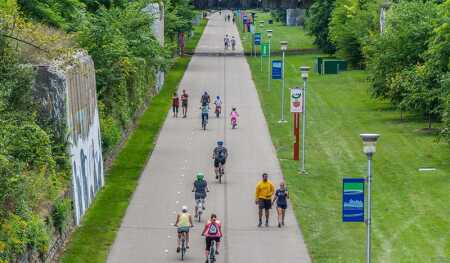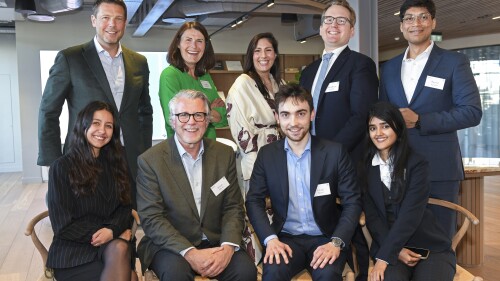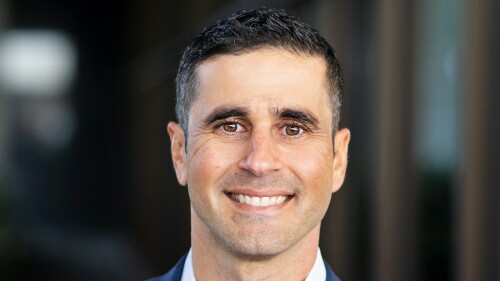Detroit’s design community has set an ambitious vision—to become a global leader in the practice of inclusive design in order to drive more inclusive growth. This vision results from the city’s designation as a UNESCO City of Design, the first and only U.S. city to receive this honor. More than 1,000 people helped develop this vision and the strategy outlined in the Detroit City of Design Action Plan, facilitated by Design Core Detroit.
Inclusive design is an emerging practice that takes into consideration the full spectrum of human diversity and individual experiences to create solutions that have social impact. By considering the person who seems like the exception in society, design can serve all in society. Through the practice of inclusive design, Detroiters can develop welcoming places to live and work, walkable and safe neighborhoods, and increased connections to critical opportunities in a way that drives inclusive growth.
Detroit can become a global leader in the development of inclusive products, services, and systems for three reasons:
- Detroit can leverage its strong base of design assets to develop a more diverse and resilient talent pipeline. Over 150,000 designers strong, Detroit’s design community has deep roots across a multitude of industries in Detroit and six major educational institutions. Detroit’s current demographics offer a future talent pool that will be a competitive advantage in a changing United States.
- Detroit has a unique ability to design and manufacture products developed through inclusive design, bringing them into our homes, workplaces, and neighborhoods. The Detroit region leads the United States in the concentration of the industrial design industry and in commercial and industrial designers—respectively 16 times and 7.5 times more concentrated than the average nationally.
- Detroit can tangibly demonstrate the positive impact that inclusive design can have. The scope and scale of Detroit’s challenges allow for a multitude of partners and projects to test new ideas and approaches in inclusive design in a way that no other city can.
More than 50 organizations have joined with Design Core Detroit to develop Detroit as a leader in inclusive design through projects that develop talent, invest in design businesses, or develop a climate that demands inclusive design. You can see their work in action throughout the city. A few notable examples include the following:
- Detroit’s Riverfront is an award-winning public space that demonstrates the role that design can play in creating beautiful, welcoming, and functional spaces. From the West Riverfront Park to Atwater Beach, numerous projects are underway to further develop one of the most visited locations in the city.
- Fisher Building’s Fourth Floor creates an opportunity to attract and incubate local talent, supporting emerging creative professionals as they grow with a prime central address, an inspirational environment, and reduced lease rates for three years.
- Edition at Simone DeSousa Gallery offers an exciting, ever-growing curation of limited-edition art and design by Detroit-based makers as well as national and international collaborators.
- The Seebaldt Pilot will revitalize the 48204 community through implementing a net-zero-energy (NZE) district (with innovative energy, water, food, waste reduction, and mobility infrastructure), and renewable systems (programs) for education, workforce development, culture, economy, and empowerment for almost 30,000 LMI residents.
The full list of Detroit City of Design partners can be found here. To follow the initiative as partner projects progress, sign up for Design Core Detroit’s newsletter or follow us on Facebook, Twitter, and Instagram.
OLGA STELLA has worked to advance Detroit community and economic development for almost 20 years, directly facilitating over $200 million of investment in the city of Detroit. As executive director of Design Core Detroit, she brings her economic development, policy and coalition building skills to a new challenge – positioning Detroit as a global source of creative talent. Stella is a member of ULI and a 2010-2011 ULI Daniel Rose Fellow.



![Western Plaza Improvements [1].jpg](https://cdn-ul.uli.org/dims4/default/15205ec/2147483647/strip/true/crop/1919x1078+0+0/resize/500x281!/quality/90/?url=https%3A%2F%2Fk2-prod-uli.s3.us-east-1.amazonaws.com%2Fbrightspot%2Fb4%2Ffa%2F5da7da1e442091ea01b5d8724354%2Fwestern-plaza-improvements-1.jpg)


